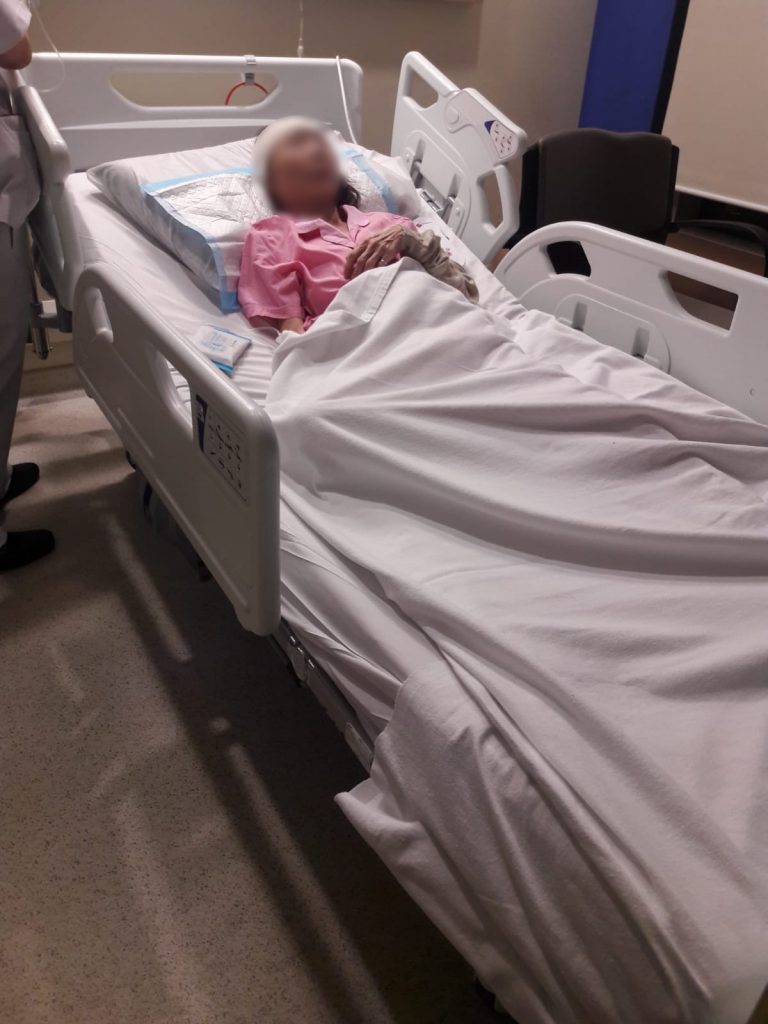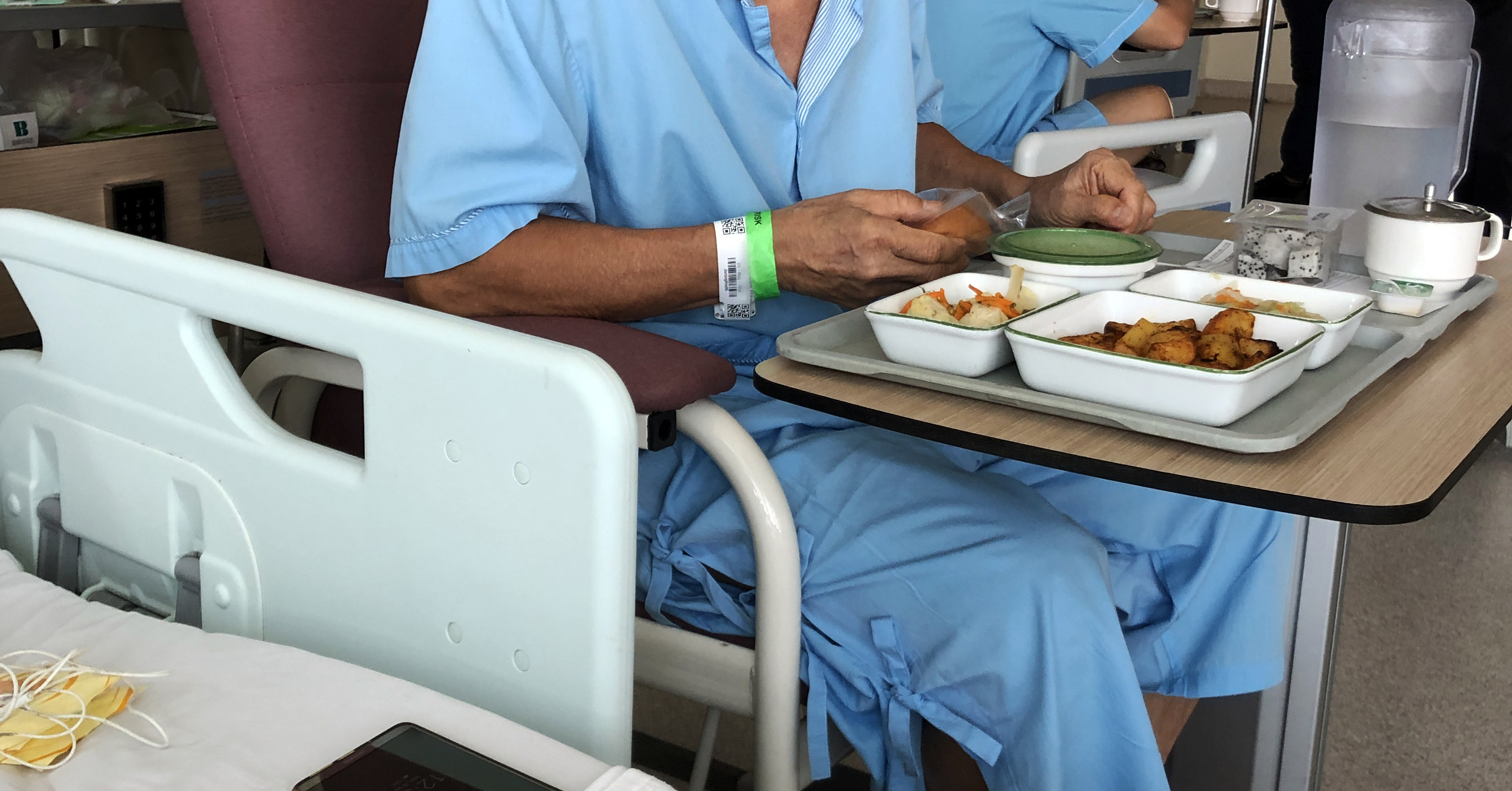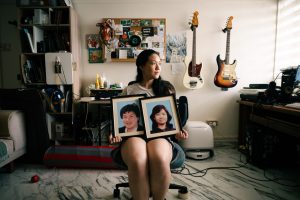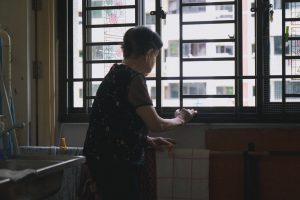All names have been changed.
This is what Elliott Chong, a 45-year-old copywriter, learnt when both his elderly parents fell ill.
It started with his mother, Mdm Chong. Two years ago, she began losing weight and stopped moving around as much. It happened over the course of a few months, so it was almost imperceptible, as if she were fading into the background.
Then rashes developed and a bad cough seized her. Unable to ignore the symptoms any further, Mdm Chong consulted her neighbourhood General Practitioner (GP), who prescribed her some medication. However, her cough, already violent, became more painful.
Yet she stubbornly refused to go to the hospital. Her reason?
“She didn’t want her children to bear expensive hospital consultation fees,” Elliott sighs.

One day, when nobody was home, Mdm Chong collapsed as she was trying to reach for the ringing telephone. Thankfully, she didn’t lose consciousness, so—while lying on the floor—she managed to call her daughter, who rushed home and called for the ambulance.
At a public hospital in Singapore, specialists carried out blood tests and X-rays on Mdm Chong to determine what she was suffering from. The initial diagnosis: either tuberculosis or pneumonia, with the possibility of developing into lung cancer. However, the doctors would have to carry out further tests to find out which Mdm Chong was afflicted by.
As both are contagious diseases, the hospital took precautionary measures and moved Mdm Chong to an isolation ward. For those five days, they also put her on ventilator support to help her breathe.
To say the Chong family was worried about their mother’s health would be an understatement. As Elliott relates to me, his entire family was crippled by dread as they waited for their mother’s test results. Haunted by the prospect of finding out that Mdm Chong might have lung cancer, no one had the appetite to eat anything for almost a week.
Furthermore, there was the spectre of the medical bills casting a shadow on them at the same time. Complex tests, an isolation ward, ventilator support, and the potential follow-up treatment: these medical provisions quickly add up to a substantial sum.
Fortunately, the Chong family received good news. Or the best news out of all possible bad outcomes, at least. The doctors found out Mdm Chong had a mild case of pneumonia that was curable. Thereafter, she was moved to a C-class ward, where the doctors started her on multiple drugs and antibiotics.
After a further two weeks spent in the hospital, Mdm Chong was finally discharged. That was not the end of the story, however. She had to continue taking a cocktail of prescribed drugs and antibiotics for over a month.
Elliott can’t recall—and is unable to find—Mdm Chong’s final medical bill, but he puts it in the ballpark of $35,000. And that’s excluding the mandatory monthly check-ups she still has to go for today to make sure the disease doesn’t recur.
When Elliott tells me the (estimated) number, I can almost understand Mdm Chong’s reluctance to let her children bring her for a hospital consultation.
Then he reassures me:
I didn’t have to pay a single cent. I wish my mum knew that so we could have brought her to the doctor sooner.
Why did this come to light only later? Because the tale of keeping ailments to themselves and not wanting to burden their children repeated itself with Elliott’s dad.
Despite the discomfort in his hip, Mr Chong decided not to let his children know about it and continued with his daily activities. But months of scraping a dislocated joint against the hip bone meant that Mr Chong’s joint and cartilage began to shred, till one day the agony became unbearable and immobilised him.
By then, he could no longer mask his pain from his children, nor avoid visiting the hospital. Eventually, Mr Chong underwent a surgery to replace his damaged joint with a prosthetic one. After two weeks of recovering and undergoing physiotherapy, he was discharged.
But, like Mdm Chong, his treatment did not end there. Elliott’s father, till today, has to visit the physiotherapist for regular therapy sessions, as well as the surgeon, who X-rays Mr Chong’s joint each time to check if it is functioning properly.
This time, Elliott still has the bills for his father’s surgery and hospital stay:
Surgery: $6,471.13.
Hospitalisation: $2,583.44.
That’s a $10,000 medical bill caused only by a bad fall. Anyone would flinch at having to fork out a five-digit, unavoidable sum suddenly.
Of course, the Chong family didn’t pay the full amount. They had purchased private hospitalisation insurance on top of their parents’ existing MediShield Life plan that covers all Singapore Citizens and Permanent Residents, regardless of age or health condition.
After deducting the portion covered, Elliott ended up with a bill of S$705.45. Relative to one of S$10,000, the amount was a lot more manageable. Still, that’s an unexpected S$705.45 expense that might originally have been meant to service his mortgage or saved for his child’s college fund.
Good thing, then, that Elliott didn’t have to fork out a single cent from his pocket for both his parents’ medical bills.
Actually, I paid [the remainder of the bill] through my MediSave.
Still, he wishes that his parents had been upfront about their ailments, and their fear of burdening him with their medical fees, earlier, because of the range of support he can get for them.
For instance, apart from government subsidies at public hospitals, Singaporeans are covered for life under MediShield Life. Schemes like CareShield Life and MediSave Care, which are designed to provide long-term financial assistance to severely disabled patients, will also be introduced later this year.
To be clear, these schemes are meant to support, not shoulder, the entire burden of medical costs. But neither does private insurance cover 100% of any medical bill.
Most people need help from a variety of sources, and this is where MediSave and MediShield Life come in.

“I don’t come from much of a well-to-do background and I know my parents don’t have much savings to begin with. Being able to take care of their health and medical needs, especially when they’re advanced in age, is really one of the best things I can do as a son right now,” Elliott says.
However, the flipside of this is that, like all Asian families, they don’t talk about money, so Elliott isn’t sure if his parents mistakenly thought that he was drawing on his own bank savings for these expenses.
Not that they would happily let him pay for their bills if they had known that he had been using MediSave, he clarifies. But they would at least feel less anxious about the cost of their medical bills, he thinks, if they had known that situations like this are precisely what MediSave and MediShield Life was designed for. In fact, Elliott thinks MediSave—with its emphasis on monthly contributions to prepare us for any contingencies—is “all the more critical during these uncertain times”.
“So MediSave and MediShield Life are definitely necessary for all Singaporeans and PRs. The scheme has benefitted me and my dependents consistently,” Elliott concludes.
Just as we will all remain a child in our parent’s eyes, regardless of how old we grow, our parents will always be our parents—people whom we want to take care of and see healthy, no matter the cost.
A relationship, as they say, is a two-way street. The parent-child one is no different.
Do your parents let you take care of them? Let us know at community@ricemedia.co.






